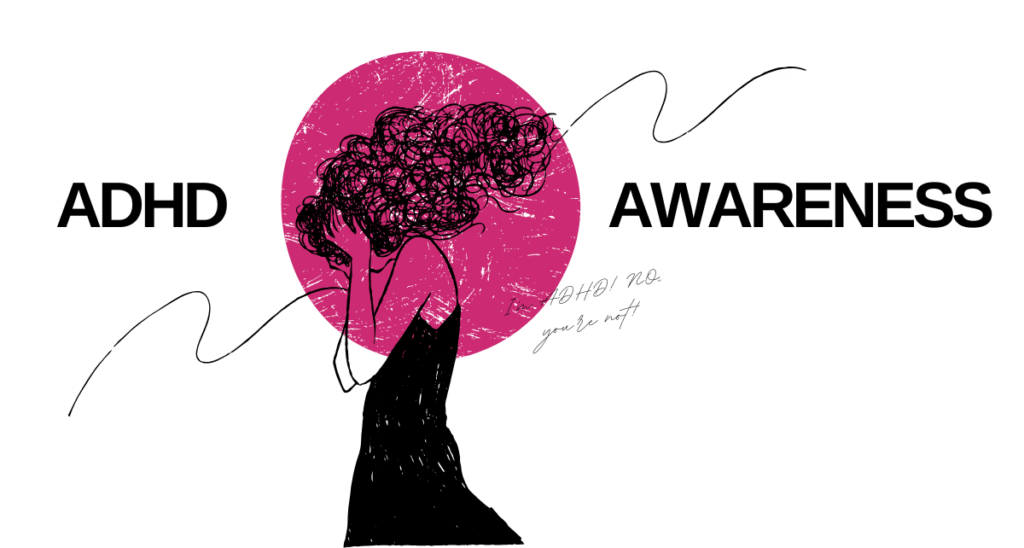
As you are aware October is ADHD awareness month with celebrities including Robbie Williams looking to raise awareness, reduce stigma and be transparent about his own struggles.
Robbie Williams has spoken publicly on a podcast I’m ADHD! No You’re Not! with Paul Whitehouse & Dr Mine Conkbayir. He’s shared how ADHD and mental health have affected his career, relationships, and self-image. In addition, how ADHD and addiction can intersect, especially for people in high-stress, high-profile careers like his and what he calls “inside Tourette’s” (intrusive thoughts) and other mental health/neurodiversity topics.
There is a lot of education required on this topic because most people associate ADHD with a children’s condition because the diagnosis is often mistaken for laziness or disorganisation.
Inattention
- Easily distracted
- Trouble with organisation
- Frequently loses things
- Forgets appointments
- Difficulty following through on tasks
Hyperactivity (can be internal)
- Feeling restless
- Fidgeting or tapping
- Talking excessively
- Difficulty relaxing
Impulsivity
- Interrupting others
- Making quick decisions without thinking
- Emotional outbursts or mood swings
However, the reality is many businesses are misunderstanding or not recognising the condition and instead seeing individuals lacking focus, being difficult or a reluctancy to try harder.
In general, most employers are not yet fully equipped or informed about ADHD in the workplace — though awareness is improving. But some reasonable adjustments can have a positive impact for all. Some large companies and public sector employers (especially in the UK, US, and EU) are improving training and support for neurodivergent employees.
However, many small to mid-size businesses lack proper awareness, training, or policies.
In many regions (UK Equality Act 2010, US ADA, Canadian Human Rights Act), ADHD is recognised as a disability, requiring:
-
- Reasonable accommodations
- Non-discrimination policies
- Confidentiality protections
For that reason small changes in the workplace can make a huge difference to individuals
- Flexible Scheduling
- Breaks when needed
- Work-from-home options
- Task Management Tools
- Project management apps (e.g., Trello, Asana)
- Reminders and timers
- Clear Communication
- Written follow-ups to meetings
- Clear, concise instructions
- Workspace Considerations
- Quiet zones or noise-cancelling headphones
- Minimal distractions
- Time Management Support
- Prioritisation coaching
- Chunking tasks into smaller steps
- Accountability & Feedback
- Regular check-ins with supervisors
- Constructive and timely feedback
Summary – HR teams can play a crucial role in supporting employees with ADHD by creating an inclusive, flexible, and understanding work environment. Emotional well-being is a cornerstone of a fulfilling life, and individuals with ADHD can benefit immensely from nurturing their mental health.
If you’re an HR team looking to take action, it may help to:
- Start by surveying your employees anonymously about their needs.
- Pilot changes with a small group and then scale what works.
- Ensure legal compliance while focusing on person-centred solutions
